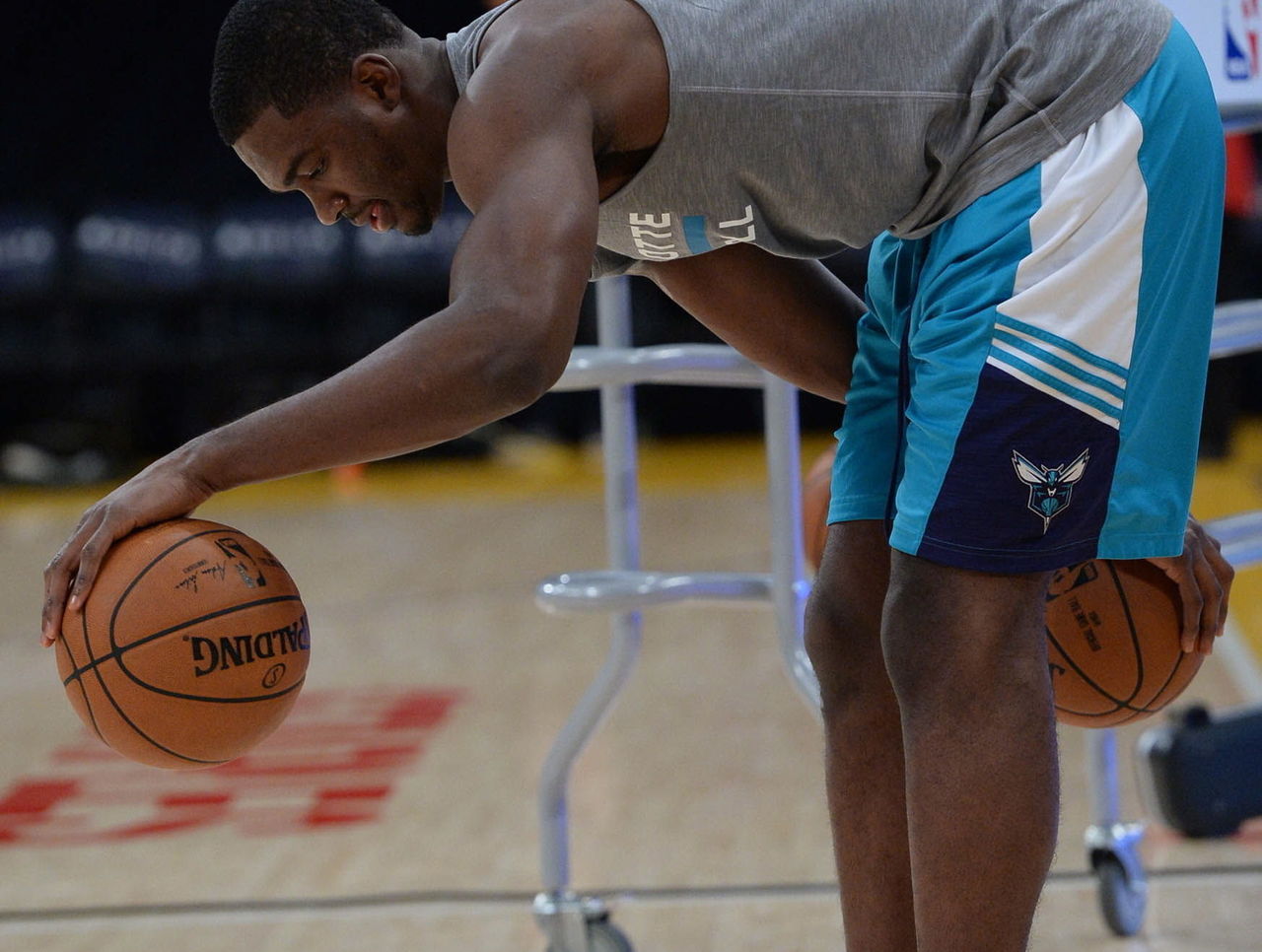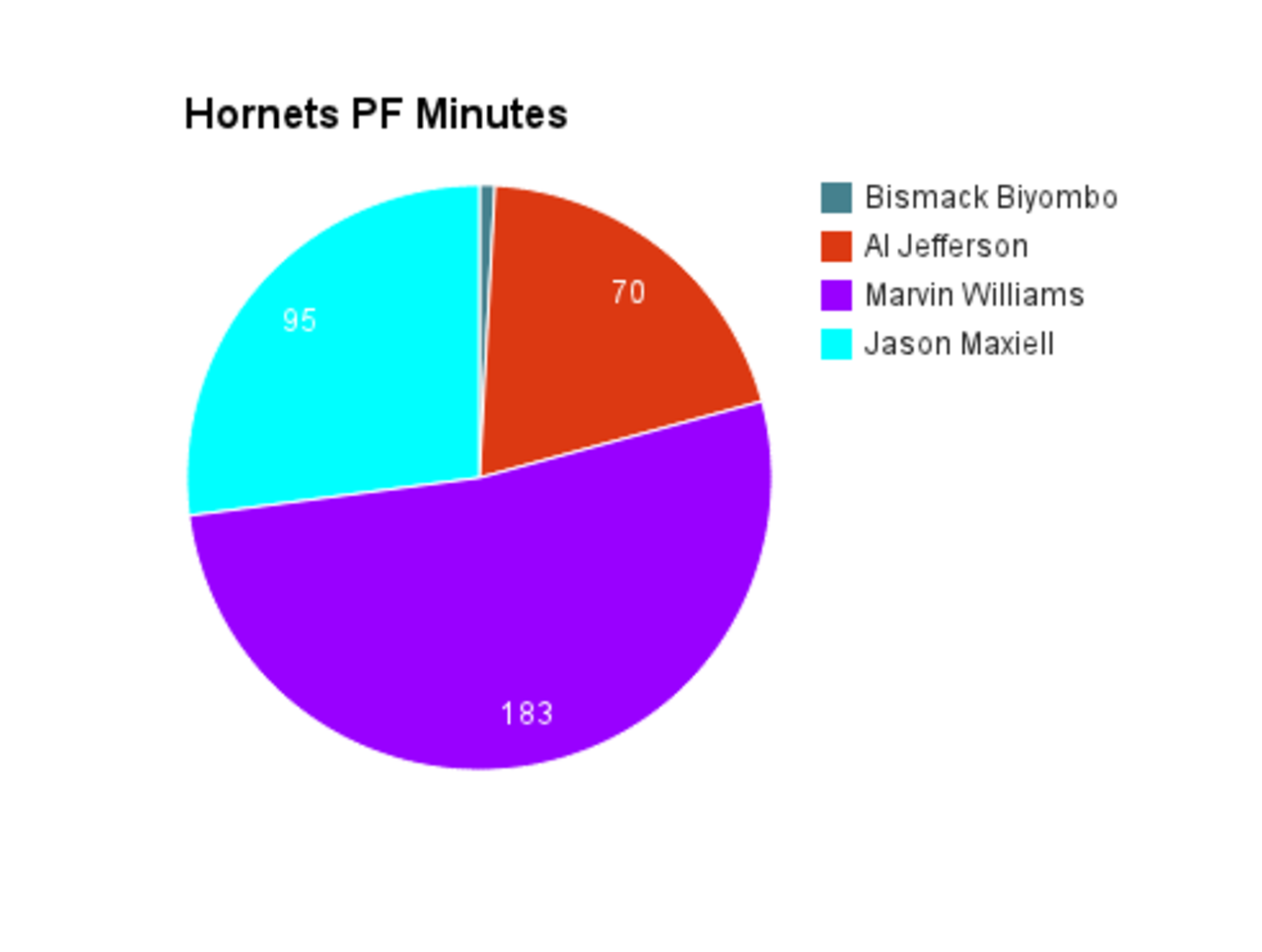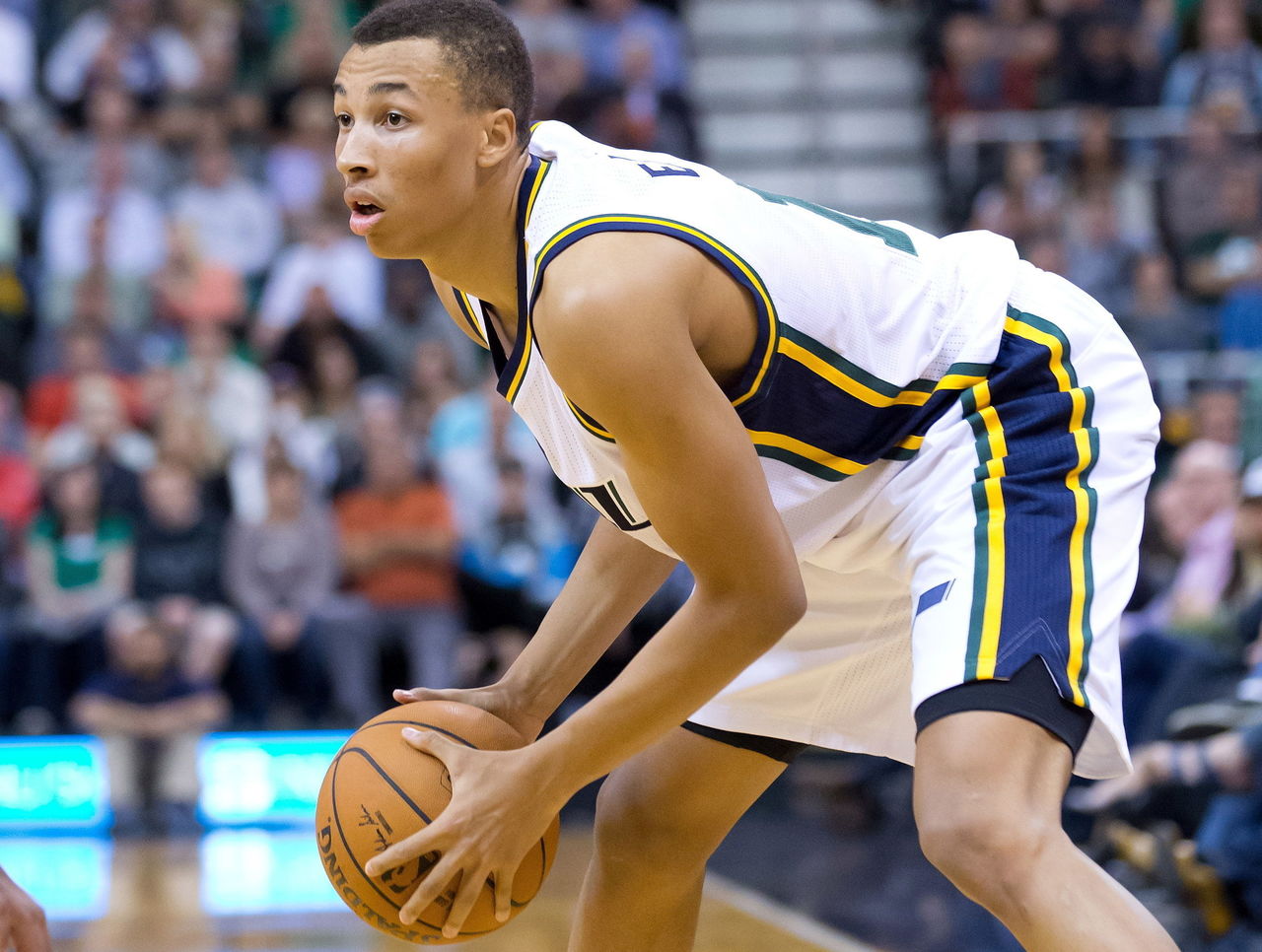K.J. McDaniels's insane block rate and 5 other notable rookie stats
Trailing by 23 points late in the third quarter on Sunday, you got the feeling Philadelphia 76ers rookie K.J. McDaniels was a little frustrated.
Maybe not with his lot in life - he's surely accepted by now that his fate as a 76ers draft pick means being stuck in a losing situation and focusing on development instead of record, for at least one season - but with the general laws of physics. A 6-foot-6 wing, McDaniels seemed to take issue with the concept of gravity, as well as the general path of flight Greivis Vasquez's layup attempt was taking.
So McDaniels did this:
That was McDaniels's third block of the game. He'd finish with four, giving him 12 on the season already in just seven games and 166 minutes.
For context, that rate of 2.6 blocks per-36 minutes ranks 15th in basketball among qualified players. His block percentage (the percentage of all opponent field-goal attempts a player blocks while on the floor) of 6.1 percent ranks 12th.
Again, McDaniels is a 6-foot-6 wing player. He is the best shot-blocking non-big in the league so far. That block percentage is tops among all players 6-foot-8 and shorter, and it's not particularly close.
| Player | Height | Block % | Blocks/36min |
|---|---|---|---|
| K.J. McDaniels | 6'6" | 6.1 | 2.6 |
| Shawn Marion | 6'7" | 4.5 | 1.8 |
| Thabo Sefolosha | 6'5" | 3.6 | 1.6 |
| Kenneth Faried | 6'8" | 3.3 | 1.5 |
| Michael Kidd-Gilchrist | 6'7" | 3.3 | 1.5 |
It would also mark the highest block rate for a player his size - by an enormous degree - since the stat was first tracked in 1973-74. It's unbelievable, and unsustainable, but not at all surprising. McDaniels was a human highlight reel at Clemson for his dunks and rejections, and he averaged 2.7 blocks last season as a junior.
McDaniels's other numbers have been more modest. He's coming off the bench for Philadelphia and averaging just 23.7 minutes, 9.3 points and 2.1 rebounds, and he's using a below-average portion of the team's possessions.
That should change soon, based on talent level and the general goals of the team, and his numbers will rise accordingly. In the meantime, here are five other early-season rookie stats that stand out.
Marcus Smart and the Celtics' 3-PG lineup
Smart, the No. 6 overall pick in June's draft who is unfortunately sidelined for a few weeks with an ankle sprain, is just one part of this intriguing set of numbers. Before he went down, the Boston Celtics were experimenting with playing the natural point guard at the three in a multi-guard unit with Rajon Rondo and Avery Bradley.
While the overall performance wasn't quite there yet, there were some really encouraging signs, as we wrote on Nov. 7:
| CELTICS LINEUPS | 3-PG | ALL OTHER | ALL LINEUPS |
|---|---|---|---|
| Minutes | 28 | 164 | 192 |
| D-Rating | 114.5 | 106.4 | 107.6 |
| Opp TO/36min | 17.9 | 11.5 | 12.2 |
| Steals/36min | 12.8 | 4.6 | 5.8 |
| O-Rating | 118.2 | 104.2 | 106.2 |
The jump in opponent turnover rate for the Celtics is incredible when those three guards take the floor together. While the defense as a whole has been worse - three point guards leaves a team susceptible to some disadvantages off switches in the pick-and-roll and in the post - it's one very encouraging result.
In part because of those turnovers, the Celtics' offense with three guards has been better. Multi-guard lineups historically do well offensively and struggle defensively. The biggest impact of those turnovers so far has been the effect it has on the team's transition game, with the Celtics running like they're the Suns.
Smart as an individual has a robust steal rate of 2.9 percent, third among qualified rookies behind Shabazz Napier and Jordan Clarkson. Smart may have been struggling with his shot - he's at 30.6 percent from the floor for the season - but the initial evidence indicates Smart will be a real difference-maker on the defensive end.
Noah Vonleh and the nail keeping him on the bench

The No. 9 overall pick in June's draft has played exactly as many NBA minutes as you have at this point.
While a sports hernia kept him out of most of training camp, there's no lingering injury keeping him from playing right now. Instead, the lost preseason has him well behind the eight ball in terms of both his development and his place in head coach Steve Clifford's rotation.
Following a decent preseason debut on Oct. 20, Clifford said that Vonleh wasn't even close to being ready to play at the NBA level, suggesting it would be midseason before Vonleh saw any appreciable run. He seems to be sticking to that, even if the Charlotte Hornets are a little thin at the four.

It's unfortunate for Hornets fans excited about the rookie and Vonleh himself, but it could be a slow climb to regular minutes. Vonleh was already thought to be a bit of a longer-term project, and this early stall in his development is discouraging.
Kostas Papanikolaou, stat stuffer
The No. 48 pick in the 2012 draft was mostly an afterthought when the Houston Rockets received him as compensation for dumping Thomas Robinson's salary on the Portland Trail Blazers last summer. A year of development and a strong FIBA World Cup performance later, the 24-year-old finds himself firmly in the Rockets' rotation.
He's shooting horribly in the 177 minutes he's played, hitting on just 28.6 percent of his attempts overall and 27.6 percent from long range, but he's bringing a lot to the table for Houston otherwise. The versatile Greek is one of just five qualified players averaging six points, six rebounds, four assists and 1.5 steals per-36 minutes, doing his best Kirilenko-light impression, without the scoring.
Papanikolaou has generally shot well enough that teams have to respect him from outside, so the 6-foot-8 combo-forward could stick in the rotation as a floor-spacing small four.
Dante Exum succeeding as he's eased along

The 19-year-old Australian was always going to require patience from Utah Jazz fans, but he's shown positive flashes perhaps sooner than anticipated.
In seven games, Exum has averaged a hair shy of 20 minutes, enough time to tally 6.7 points and three assists. He's also shot 48.5 percent from the floor, an area where he was expected to struggle somewhat. It's incredibly early to look at advanced counting stats, but Exum's tied with Bojan Bogdanovic atop the rookie Win Shares leaderboard through two weeks.
It's all been very encouraging, especially his ability to limit miscues - at least relative to his experience level. With a turnover rate of 13.2 percent, Exum finds himself roughly in the middle of the pack for guards. Controlling the ball and keeping the turnovers down is generally thought to be a learned skill that improves with experience, so Exum taking care of the ball early is a major positive.
Of course, it's just seven games and 136 minutes. Everything right now is a small sample. But he's performed better than anticipated in that span of time, and that's preferable to the opposite.
Elfrid Payton and Channing Frye aren't getting along
Here's a strange one that should correct itself soon: Payton is struggling when Frye is on the floor compared to when Frye's on the bench.
It's early, but the result contradicts expectations - Frye generally makes life easier for guards by stretching defenses out and preventing driving lanes from getting cluttered. Frye's still shaking off the effects of a sprained MCL he suffered in the preseason, but he's also hitting 38.5 percent from long range.
Still, the Magic are struggling with both on the floor relative to when Payton plays without Frye.
| Payton | with Frye | without Frye |
|---|---|---|
| Minutes | 128 | 83 |
| Magic Net Rating | -13.6 | +9.0 |
| FG% | 35.6% | 31.6% |
| Ast Ratio | 31.1% | 33.8% |
| FGA/36 w/in 5ft. | 7.9 | 5.2 |
| Magic TO% | 15.5% | 19.3% |
There are some reassuring signs here. Not only does Payton get to the rim more frequently with Frye on the floor, the Magic as a team turn the ball over less, likely speaking to easier driving lines. What's more, part of Payton's struggle could be simple variance, as Frye is hitting just 31.3 percent of his threes with Payton on the floor and 37.5 percent on attempts resulting directly from a Payton pass.
| Player | % of Payton's passes | FG% after Payton pass | Overall FG% |
|---|---|---|---|
| Nikola Vucevic | 27.00% | 52.1% | 53.0% |
| Evan Fournier | 20.50% | 45.5% | 50.6% |
| Tobias Harris | 19.70% | 25.8% | 42.5% |
| Channing Frye | 18.20% | 53.8% | 48.8% |
| Ben Gordon | 5.60% | 60.0% | 38.8% |
Payton is averaging a respectable eight points, four rebounds, 6.4 assists and 1.6 steals in 30.1 minutes. As his field goal percentage regresses from an unsustainably low 34.4 percent, he and Frye find a better chemistry, and Victor Oladipo returns to take some of the load off, expect Payton to impress even more moving forward.